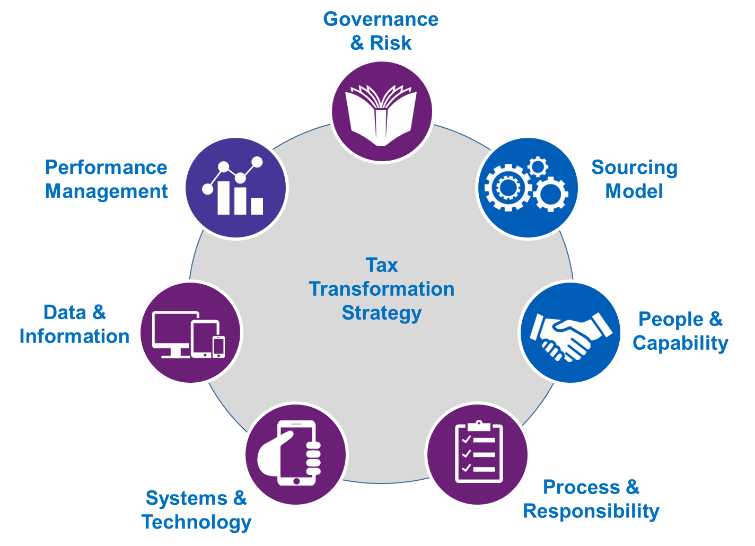The Impact of India’s Evolving Tax Laws on Startups: What Entrepreneurs Need to Know

India’s startup ecosystem has grown exponentially over the past decade, becoming a hotbed for innovation and entrepreneurship. However, navigating the complex and evolving tax landscape is a significant challenge for startups. The 2024 Budget session introduced several key tax regulations that directly impact startups, aiming to strike a balance between encouraging entrepreneurship and ensuring compliance. This article provides a comprehensive analysis of the latest tax regulations affecting startups in India and offers actionable insights for entrepreneurs.
1. Overview of India’s Startup Ecosystem
India’s startup ecosystem is one of the largest in the world, with over 100,000 startups registered by 2024. The government’s initiatives like ‘Startup India’ and ‘Make in India’ have provided significant momentum, leading to increased foreign investments, a rise in unicorns, and job creation. However, along with growth, startups face challenges in tax compliance, which can have profound implications on their operations and scalability.
2. Key Tax Regulations Introduced in the 2024 Budget
The 2024 Budget session introduced several key tax changes that startups must consider:
a. Rationalization of Angel Tax
The angel tax has been a contentious issue for startups, particularly for those raising funds from domestic investors. The 2024 Budget proposes to further rationalize the angel tax provisions, expanding the list of eligible investors exempt from this tax. This move is expected to ease fundraising for startups and reduce unnecessary scrutiny by tax authorities.
b. Extension of Tax Holiday for Startups
The tax holiday for eligible startups under Section 80-IAC, which allows for a 100% deduction of profits for three consecutive years out of the first ten years, has been extended. This extension reflects the government’s commitment to supporting startups during their critical growth phases, allowing them to reinvest profits into the business without the burden of tax liabilities.
c. Revised TDS and TCS Provisions
The Budget also introduced changes to the Tax Deducted at Source (TDS) and Tax Collected at Source (TCS) provisions, which have a direct impact on startups. The threshold limits for TDS on various payments, including contractor payments and professional fees, have been revised. Startups need to stay updated on these changes to ensure compliance and avoid penalties.
d. GST Compliance and E-Invoicing
The implementation of mandatory e-invoicing for businesses with a turnover of ₹5 crores or more has been expanded. Startups, particularly those in the early stages, need to adapt their invoicing systems to comply with this requirement. Non-compliance can lead to penalties and disruptions in business operations.
3. Impact of Tax Regulations on Startup Funding
a. Domestic and Foreign Investments
The rationalization of the angel tax is expected to have a positive impact on domestic investments, making it easier for startups to raise funds without the fear of tax implications. Additionally, the clarification on the applicability of the angel tax on foreign investments is likely to attract more foreign capital into the Indian startup ecosystem.
b. ESOP Taxation
Employee Stock Option Plans (ESOPs) are a popular tool for startups to attract and retain talent. The 2024 Budget has introduced provisions to defer the tax liability on ESOPs to the point of sale or exit, rather than at the time of exercise. This change is a significant relief for startup employees, making ESOPs a more attractive option.
4. Tax Planning Strategies for Startups
Startups need to adopt robust tax planning strategies to optimize their tax liabilities and ensure compliance. Here are some strategies that can be beneficial:
a. Leverage Tax Incentives
Startups should take full advantage of the tax incentives available under various sections of the Income Tax Act, such as the deductions under Section 80-IAC and exemptions on capital gains under Section 54GB. Proper documentation and timely filing are crucial to claiming these benefits.
b. Regular Compliance Audits
Regular tax audits can help identify potential compliance issues early on, reducing the risk of penalties. Startups should invest in professional tax advisory services to stay updated on regulatory changes and ensure that their tax filings are accurate.
c. Optimize ESOP Structures
With the revised taxation on ESOPs, startups should revisit their ESOP structures to align with the new regulations. This includes considering the timing of ESOP grants and exercises to minimize tax liabilities for both the company and employees.
d. Efficient Cash Flow Management
Effective cash flow management is essential for startups, especially in light of the revised TDS and TCS provisions. Startups should ensure that they have sufficient cash reserves to meet their tax obligations without affecting their operations.
5. Navigating GST Compliance
a. Understanding GST Rates and Input Tax Credit (ITC)
Startups need to have a clear understanding of applicable GST rates for their products and services. Additionally, optimizing the use of Input Tax Credit (ITC) can help reduce the overall GST liability. Startups should maintain accurate records and invoices to claim ITC without disputes.
b. Adapting to E-Invoicing Requirements
The extension of mandatory e-invoicing requirements necessitates that startups upgrade their invoicing systems. Implementing a robust e-invoicing solution that integrates with the GST portal can streamline compliance and reduce the risk of errors.
c. Dealing with GST Refunds
Startups engaged in export activities or those with inverted duty structures may be eligible for GST refunds. Understanding the process and timelines for claiming refunds is crucial to managing cash flow effectively.
6. The Role of Technology in Tax Compliance

Technology plays a pivotal role in ensuring tax compliance for startups. Here are some technological solutions that can assist startups:
a. Tax Compliance Software
Investing in tax compliance software can automate various aspects of tax filing, such as TDS calculations, GST returns, and e-invoicing. This reduces the risk of errors and ensures timely compliance.
b. Blockchain for Transparent Record-Keeping
Blockchain technology can provide startups with a transparent and immutable record-keeping system, which is particularly useful for tracking financial transactions and ensuring audit readiness.
c. AI-Driven Tax Advisory
Artificial intelligence (AI) can offer startups predictive insights into their tax liabilities and suggest optimal tax planning strategies based on real-time data. AI-driven tax advisory tools can also help startups navigate complex tax regulations more effectively.
7. Case Studies: Impact of Tax Regulations on Startups
a. Case Study 1: A Tech Startup Navigating Angel Tax Issues
This case study examines how a technology startup in Bengaluru successfully navigated the complexities of the angel tax by restructuring its investment agreements and leveraging government incentives. The startup’s approach can serve as a model for other startups facing similar challenges.
b. Case Study 2: A Manufacturing Startup Adapting to GST Changes
A manufacturing startup in Pune had to overhaul its invoicing system to comply with the new e-invoicing requirements. This case study highlights the steps taken by the startup to ensure seamless GST compliance, including the adoption of an integrated e-invoicing solution.
8. Future Outlook: What to Expect in the Coming Years
The tax landscape for startups in India is likely to continue evolving, with further reforms expected in areas such as digital taxation, cross-border transactions, and tax incentives for R&D activities. Startups need to stay agile and adapt to these changes proactively.
9. Actionable Insights for Entrepreneurs
a. Stay Informed and Updated
Entrepreneurs must stay informed about the latest tax regulations and budget announcements. Regularly attending tax workshops, subscribing to financial newsletters, and consulting with tax professionals are essential practices.
b. Engage with Government Initiatives
Startups should actively engage with government initiatives such as Startup India and avail of the benefits offered, including tax exemptions, funding support, and mentorship.
c. Build a Strong Financial Foundation
Having a solid financial foundation, including proper bookkeeping, regular audits, and transparent record-keeping, is crucial for startups to manage their tax liabilities effectively and avoid legal complications.
10. Conclusion
Navigating India’s evolving tax laws is a critical aspect of running a successful startup. The 2024 Budget has introduced several significant changes that startups must consider, from rationalized angel tax provisions to extended tax holidays and revised GST compliance requirements. By staying informed, leveraging tax incentives, and adopting robust tax planning strategies, entrepreneurs can ensure that their startups remain compliant, financially healthy, and poised for growth.
Startups are encouraged to work closely with tax professionals to navigate the complex tax landscape and take advantage of the various incentives available. As the government continues to refine its policies to support entrepreneurship, startups must remain proactive in adapting to new regulations and optimizing their tax strategies to thrive in India’s dynamic business environment.







